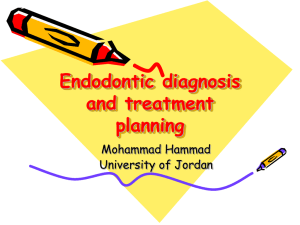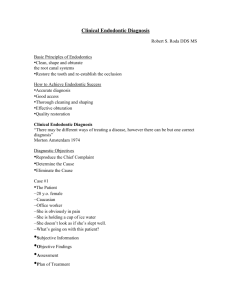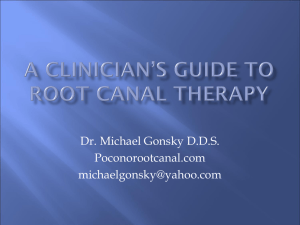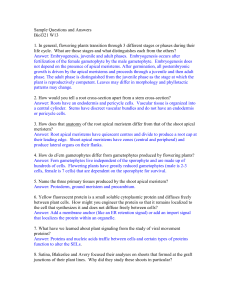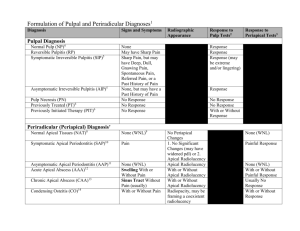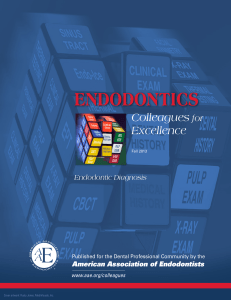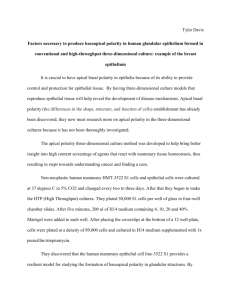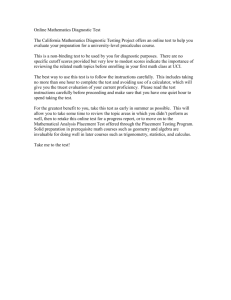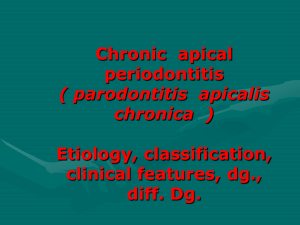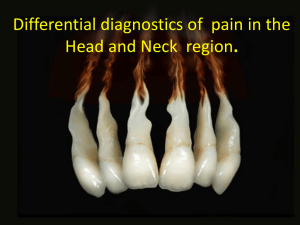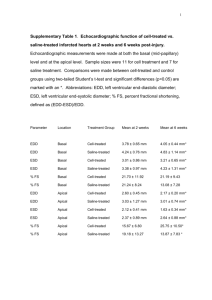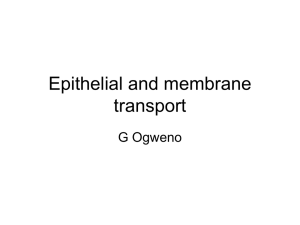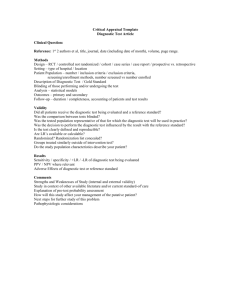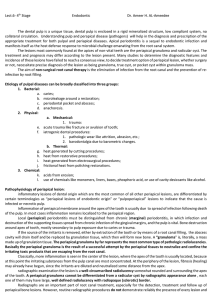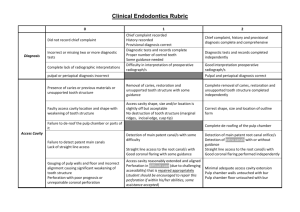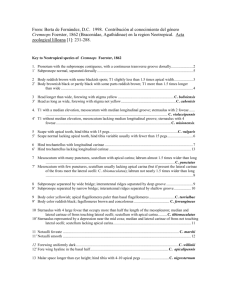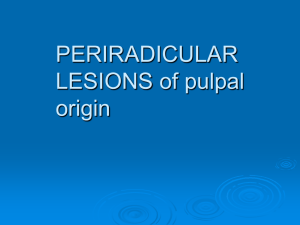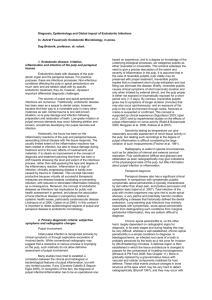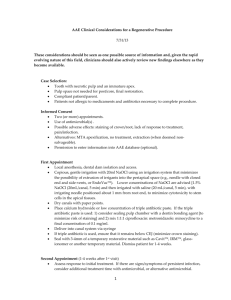Glossary of Endodontic Terms ( file)
advertisement
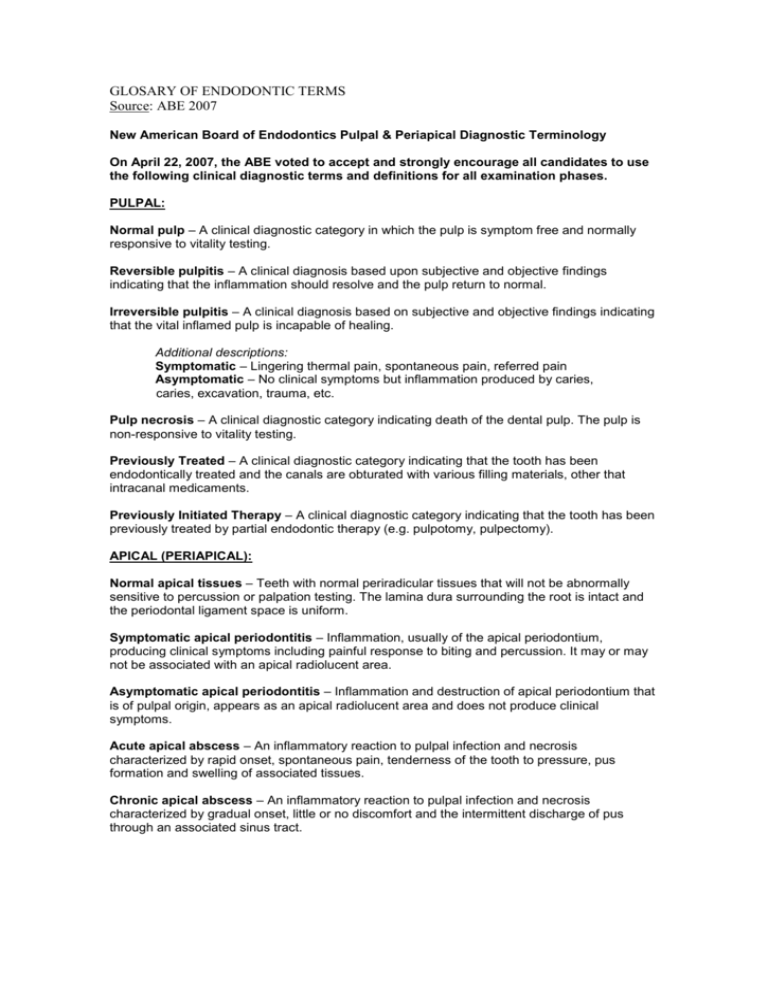
GLOSARY OF ENDODONTIC TERMS Source: ABE 2007 New American Board of Endodontics Pulpal & Periapical Diagnostic Terminology On April 22, 2007, the ABE voted to accept and strongly encourage all candidates to use the following clinical diagnostic terms and definitions for all examination phases. PULPAL: Normal pulp – A clinical diagnostic category in which the pulp is symptom free and normally responsive to vitality testing. Reversible pulpitis – A clinical diagnosis based upon subjective and objective findings indicating that the inflammation should resolve and the pulp return to normal. Irreversible pulpitis – A clinical diagnosis based on subjective and objective findings indicating that the vital inflamed pulp is incapable of healing. Additional descriptions: Symptomatic – Lingering thermal pain, spontaneous pain, referred pain Asymptomatic – No clinical symptoms but inflammation produced by caries, caries, excavation, trauma, etc. Pulp necrosis – A clinical diagnostic category indicating death of the dental pulp. The pulp is non-responsive to vitality testing. Previously Treated – A clinical diagnostic category indicating that the tooth has been endodontically treated and the canals are obturated with various filling materials, other that intracanal medicaments. Previously Initiated Therapy – A clinical diagnostic category indicating that the tooth has been previously treated by partial endodontic therapy (e.g. pulpotomy, pulpectomy). APICAL (PERIAPICAL): Normal apical tissues – Teeth with normal periradicular tissues that will not be abnormally sensitive to percussion or palpation testing. The lamina dura surrounding the root is intact and the periodontal ligament space is uniform. Symptomatic apical periodontitis – Inflammation, usually of the apical periodontium, producing clinical symptoms including painful response to biting and percussion. It may or may not be associated with an apical radiolucent area. Asymptomatic apical periodontitis – Inflammation and destruction of apical periodontium that is of pulpal origin, appears as an apical radiolucent area and does not produce clinical symptoms. Acute apical abscess – An inflammatory reaction to pulpal infection and necrosis characterized by rapid onset, spontaneous pain, tenderness of the tooth to pressure, pus formation and swelling of associated tissues. Chronic apical abscess – An inflammatory reaction to pulpal infection and necrosis characterized by gradual onset, little or no discomfort and the intermittent discharge of pus through an associated sinus tract.
